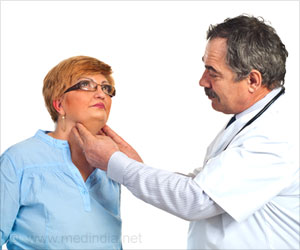Highlights:
- Eating patterns impacts the mortality and symptoms in head, neck cancer patients.
- Including five or more portions of fruit and vegetable per day, avoiding trans fats and sugary drinks reduces mortality by 93%.
- This can help improve treatment response and disease outcomes.
Importance of a Healthy Diet in Head and Neck Cancers
“We looked at six different diet quality indices and compared patient outcomes. The goal was to evaluate adherence to different eating patterns and explore how diet was related to cancer-specific and all-cause mortality,” said Vieytes.The Alternate Mediterranean Diet, often known as aMED, the DASH diet, and three other low-carbohydrate diets, including a general low-carbohydrate diet and regimens centered on intake of animal and plant proteins, were also used to assess patients' eating habits in addition to the AHEI-2010.
Value of AHEI-2010 in Assessing Outcomes in Cancer Treatments
The AHEI-2010 is a substitute for government dietary recommendations that measures an individual's diet quality from 0-110 depending on how frequently they consume 11 categories of healthy and harmful foods. Experts at the Harvard T.H. Chan Medical School have developed it.
Higher scores suggest healthy eating practices include taking five or more servings per day of each fruit and vegetable and avoiding trans fats and sugary drinks.
According to the American Heart Association website, the DASH diet is a low-sodium, low-saturated fat diet that decreases blood pressure, cholesterol levels and heart attack and stroke risk.
The researchers developed an indicator to grade patients' meals for the overall low-carbohydrate strategy, with higher scores representing reduced carbohydrate consumption and higher level of fat and protein. The amounts of fat and protein derived from animal or vegetable sources were measured for scoring, while rating the versions based on both plant and animal-based diet.
“When we tested all of these indices, we found that only one of them – the AHEI-2010 – had strong relationship to the outcome of all-cause mortality,” Vieytes said.
According to him, there was a 60% reduction in the patient mortality risk for every 11-point improvement in adherence to the AHEI-2010.
Two low-carb diets had a negligible impact on the patient death rates. The researchers discovered that higher general and plant-based low-carbohydrate index scores linked to 59% and 71% lower all-cause death rate, respectively. These results, however, did not reach the level of statistical significance.
Accordingly, the researchers discovered no differences in death rates between the DASH, aMED and low-carbohydrate diets based on animals.
“We think the AHEI-2010 is more nuanced for calculating all these dietary quality indices. It relies on several different dietary components and has a very granular scale as opposed to some of the other indicators. We have shown with the work that we do in our lab that nutrition is intricately tied to several outcomes in head and neck cancers, not just mortality but also to symptoms that patients will exhibit. This is another piece of evidence that we need to be scrutinizing nutrition as patients go through the treatment process and over the disease course,” said Vieytes.
Significance Diet in Cancer Treatment
The results expand on earlier research with SPORE patients by corresponding author Anna E. Arthur, who was then a professor of food science and human nutrition at the University of Illinois. That earlier research suggested that a diet rich in antioxidants and other micronutrients may significantly improve recurrence and survival rates and mitigate nutritional issues that frequently arise during these patients' treatment.“Our team’s research is significant because very little is currently known about how to improve response to treatment and disease outcomes for head and neck cancer patients through nutrition. Given the severe symptoms and side effects that head and neck cancer patients experience that impact eating and nutrition, our work is essential to developing future dietary intervention studies as well as medical nutrition therapy guidelines for this patient group,” said Arthur, currently a professor of dietetics and nutrition at the University of Kansas Medical Center.
Reference:
- Healthy diet after head, neck cancer diagnosis may boost survival - (https://www.eurekalert.org/news-releases/960089)
Source-Eurekalert
















